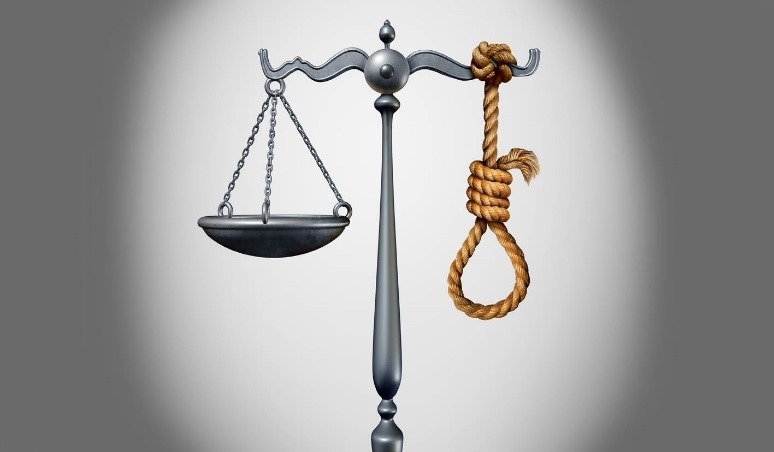Introduction
On 28 August 2025, the Supreme Court of India examined an important question regarding when Article 32 of the Constitution permits courts to re-examine a death penalty that has been finalized by dismissing an appeal, review, and mercy petitions. In a ruling from a three-judge Bench (Justices Vikram Nath, Sanjay Karol, and Sandeep Mehta), the Court held that courts still possessed the power under Article 32 to revisit the sentencing part of the case, particularly when not applying recently established safeguards would hinder and infringe the condemned prisoner’s fundamental rights.
Background
The case arose from the conviction of an individual in Nagpur in 2008 for the rape and murder of a four-year-old girl. The convict was sentenced to death by the trial court in 2010, which was confirmed by the Bombay High Court in 2012 and the Supreme Court in 2014. The convict’s review petition and mercy petitions (first submitted to the Governor under Article 161 and then to the President under Article 72) were both dismissed.
However, in Manoj v. State of Madhya Pradesh (2023), the Supreme Court established a new, thorough set of guidelines for cases of death penalty sentencing. These guidelines required that the courts and state make comprehensive mitigation material (psychiatric, psychological, social history, and record of conduct in jail) available to the court, before imposing a death penalty. This suite of guidelines papered over significant failures and disparities in the capital sentencing system. The convict was asserting that the death penalty had been upheld in 2019 without the safeguards that he was requesting in his Article 32 application for re-sentencing.
Key Points of the Judgment
There is a distinctly exceptional aspect to Article 32. As Justice Vikram Nath observed, death sentences are also exceptional as a form of law because they are irreversible. The Article 32 remedy is the “basis of constitutional remedies” and relates to the very execution of the sentence which violates your rights. The finality of the process cannot intervene in a case where life and liberty are at stake.
Corrective Power of the Court:
The Court emphasized that it has powers under Articles 32 and 142. These powers give the Court legislative authority to issue effective remedies whenever a situation arises that creates a constitutional violation, notwithstanding that the ordinary appetites of appeal or review have been exhausted.
Role of the Manoj safeguards:
In terms of the role of the Manoj safeguards, the Bench acknowledged that the Manoj guidelines have now become an inextricable part of the due process of law under the Constitution in a death penalty case. If the guidelines were not followed, the convict’s was deprived of equal protection (14) and fair process (21).
Concurred – Retrospective Effect of Courts’ Decisions:
In his concurred opinion, Justice Sanjay Karol stated that on a charter interpretation, judicial pronouncements generally operate on a prospective basis unless otherwise stated. In fact, if it was suggested the other courts must follow the protections of the Manoj guidelines (even when adopting them for their specific circumstances), then other inmates found guilty who imposed sentences of detention before the Manoj (2023) guidelines would receive the benefit with the new retrospective guidelines. He stated that even when Article 21 rights and finality are in tension, the scales should always tip in favor of life and liberty.
Limits to the Reopening:
The Court explained that its interference was solely with respect to the sentence, and therefore the conviction remains unaffected.
Recent Developments
Although, the context of the judgment was a reference currently awaiting a Constitution Bench in Death Sentence Mitigating Circumstances Guidelines, In Re (2023), regarding the establishment of a “national uniform framework” for sentencing in capital cases, which was intended to establish boundaries for the present case as an example to demonstrate systemic failures in using mitigating factors. The Court also referred to cases such as A.R. Antulay v. R.S. Nayak (1988), and reaffirmed the substantive guarantees provided by the constitution cannot be overcome through frontline procedural gates, and therefore, the decision restates the judiciary’s position that death sentences could be revisited when supervening judicial protections arise.
Conclusion
The ruling constitutes a major expansion of the remedial ambit of Article 32 in India’s constitutional narrative. The Supreme Court explained that even once finalised death penalties should be considered if executing a sentence would breach Articles 14 and 21. While cautioning about normalizing extraordinary relief in this manner, the Bench adopted a clear position to ensure, at a minimum, individualized, fair sentencing, consistent with current constitutional principles. In a shocking turn of events, the Supreme Court has stayed the death penalty for the time being and remitted the case back for re-sentencing in accordance with Manoj (2023). The reasoning suggests that when any issue involves a threat to human life, procedural limits must yield to substance, particularly considering fundamental rights.
“PRIME LEGAL is a full-service law firm that has won a National Award and has more than 20 years of experience in an array of sectors and practice areas. Prime legal falls into the category of best law firm, best lawyer, best family lawyer, best divorce lawyer, best divorce law firm, best criminal lawyer, best criminal law firm, best consumer lawyer, best civil lawyer.”
WRITTEN BY __ Kondala Phani Priya


